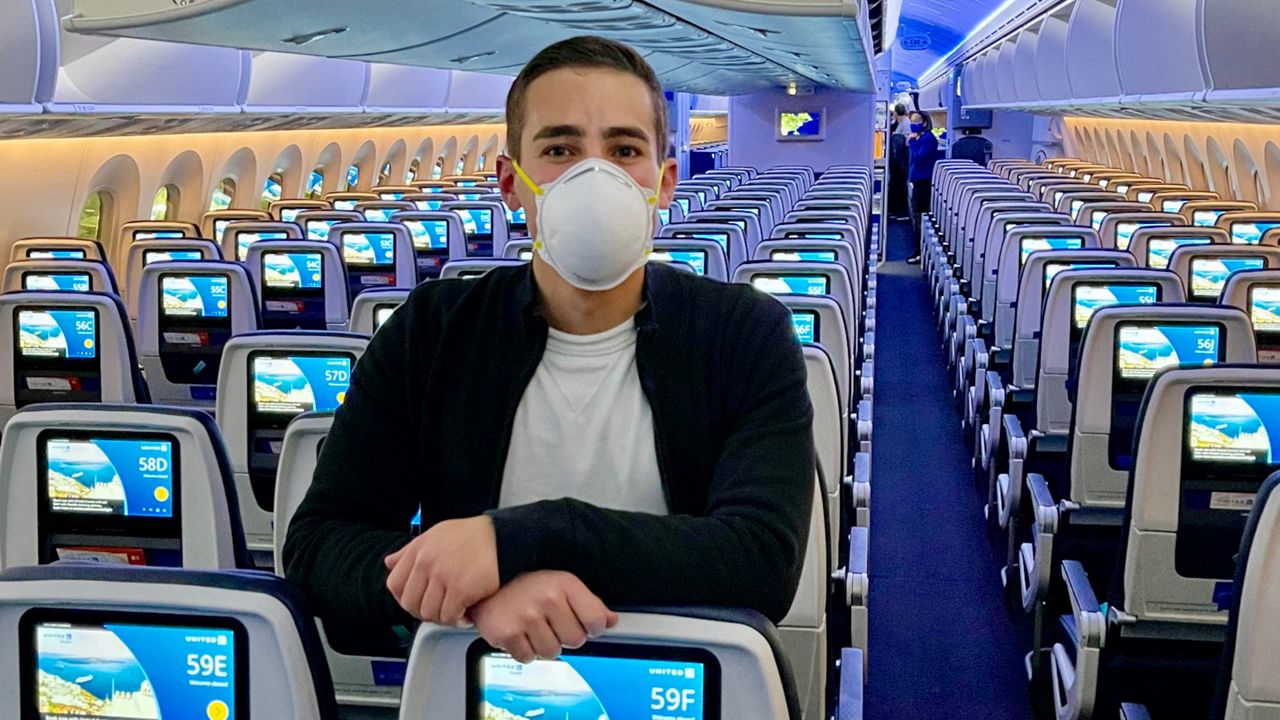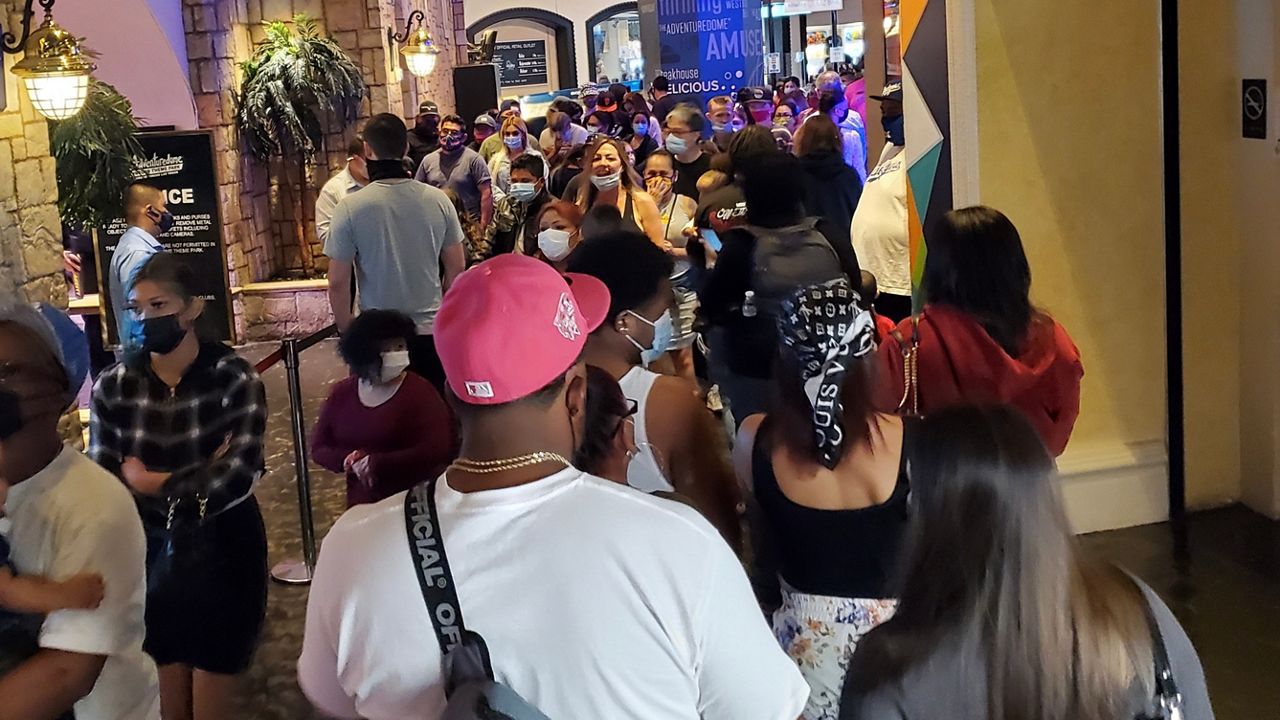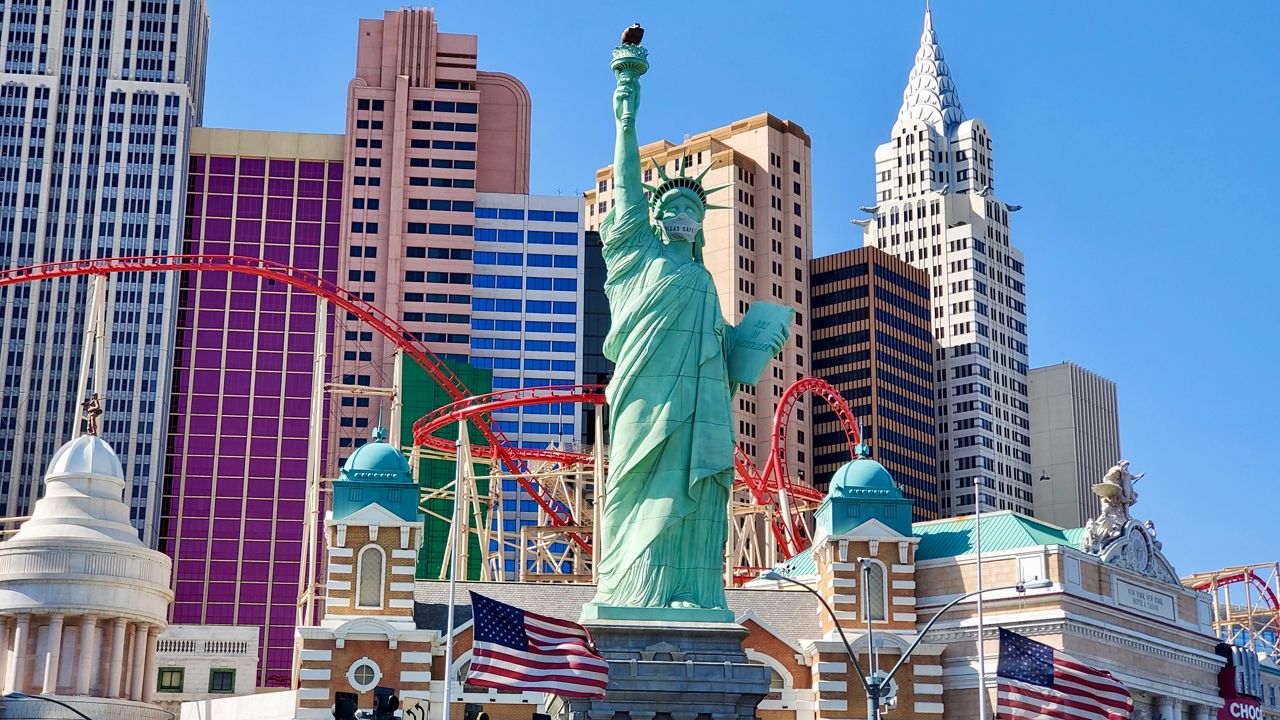Travel is coming back.
After being devastated by the coronavirus pandemic and state shutdowns, the U.S. and California's travel industry are ready to bounce back.
With more people getting vaccinated, lockdowns lifted, Memorial Day approaching and summer right around the corner, travel experts expect plenty of people hitting the roads to get away from home.
"There's a lot of pent-up demand — even for people just wanting to go outside," said Oliver Hoare, the general manager of lodging for Avalara.
The Memorial Day weekend usually signifies the unofficial start of summer and summer travel.
This weekend, AAA Travel estimates more than 37 million people nationwide will travel 50 miles or more from home, a year-over-year increase of 60%. Of that number, nearly three million — a 64% increase from the previous year — are Southern Californians looking to get away.
According to AAA, about 23 million people nationwide traveled last year during the early stages of the coronavirus pandemic. It was the lowest number AAA had recorded since tracking the metric in 2000.
Though AAA officials said 37 million people expect to get away this weekend, it is still nearly six million fewer travelers than in 2019. Given that the pandemic continues, many people are still travel-hesitant.
But the fact that more people are looking to travel this Memorial Day weekend and beyond is a good indicator that the travel industry is rebounding from the lows of the pandemic.
"As more people get the COVID-19 vaccine and consumer confidence grows, Americans are demonstrating a strong desire to travel this Memorial Day," said Paula Twidale, senior vice president of AAA Travel, in a news release. "This pent-up demand will result in a significant increase in Memorial Day travel, which is a strong indicator for summer, though we must all remember to continue taking important safety precautions."
The AAA report comes a year after the U.S. travel industry saw a huge decline due to federal and state restrictions limiting travel to slow the spread of the coronavirus.
The U.S. Travel Association found from March and through the end of 2020, the pandemic resulted in $492 billion in cumulative losses for the U.S. travel economy. In California, tourism spending fell to $65 billion in 2020, 45% of the 2019 amount, Visit California officials reported.

"The pandemic is still having a significant impact on the industry," said Zach Griff, a senior reporter with The Points Guy, a travel website and news site. "As we all know, last March, the travel industry basically shut down. Airlines slashed their schedule. Hotels closed. Car rental agencies sold their fleet, and cruises were docked or drifting in the middle of the ocean."
But as the months went on, several states slowly began phased reopening plans. When the vaccines came out, more people started receiving the shots, which helped increase consumer confidence.
About a month ago, the Centers for Disease Control and Prevention updated its guidance that said fully vaccinated people can travel safely within the U.S. The CDC recommended unvaccinated people take certain precautions before traveling, including taking a COVID-19 test, wearing masks and maintaining social distancing.
The CDC's recommendation was the final seal of approval to many vaccinated people to decide to get away, said Griff.
"That was the call," said Griff. "That was the permission needed for so many people with pent-up demand to say, 'Alright, now is my time to go.' That gave people a lot of confidence."
Additionally, several states either have or are beginning to reopen their economy, just in time for the summer travel rush. Nevada, the home of Las Vegas, is fully reopening with no restrictions on June 1. Illinois is reopening on June 11. California is reopening on June 15.
With so many people expecting to travel this summer, the big question is: Who are these people and where are they planning to visit?
The people currently or planning to travel are leisure travelers in the U.S. Most are traveling by car and staying at a short-term rental.

Corporate travel is limited, and inbound and outbound international travel are still very restrictive. According to AAA, more than 2.5 million Southern Californians will travel by car this weekend. Meanwhile, there will be about 270,000 flyers.
Hoare said in the past 12 months or so, short-term rental companies, such as Airbnb and VRBO, have seen exponential growth and demand.
Travel experts say most travelers are venturing out to the great outdoors. Some of the more popular places are Redding, Eureka, Santa Barbara and the beaches in California.
"People want to be outside," Hoare said. "Places such as California, Florida and Hawaii are going to do very, very well because people can just go out and go to the beach.
"There's a large shift from city centers to rural areas," said Hoare. "There's a mass divergence away from downtown core areas."
According to AAA Travel, the top five destinations for Southern California travelers are Zion and Bryce Canyon National Parks, Utah, Las Vegas, Grand Canyon National Park, San Diego and Yosemite National Park.
Griff said being in outdoor places and locations allows people to take off their masks and maintain social distancing.
For those who have mostly stayed home and haven't traveled in more than a year, visiting certain places may come as a surprise.
"I think most people who are going back out there will be shell-shocked," Griff said. "If you've only gone to the grocery store in the past year and a half, this will be a wildly different world. They'll see people who may not maintain social distancing or wear masks below their nose."
Still, vaccinated people shouldn't worry too much.
"According to the CDC, there's a low risk of hospitalizations and death once you're vaccinated," Griff said. "That's what driving all of this demand."
